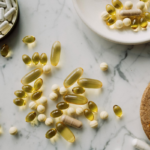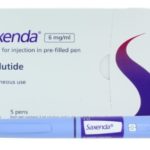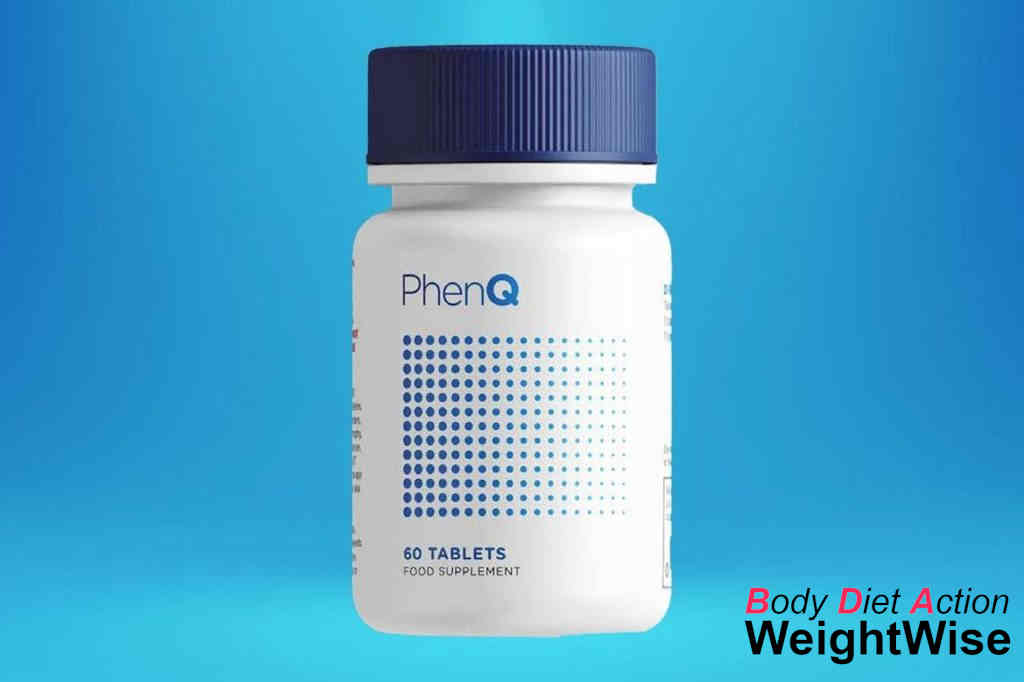Introduction
Hormonal imbalance is a remarkably common issue that can lead to numerous health concerns. These include weight gain, mood swings, and menstrual irregularities.
Fortunately, achieving hormonal balance doesn’t always require prescription medications – natural supplements combined with lifestyle changes can offer significant support.
In this blog post, we explore essential vitamins and herbs that promote hormonal balance and tips on incorporating them into your daily routine effectively. Natural supplements for supporting hormonal balance can be beneficial when accompanied by a healthy diet.
Key Takeaways
- Hormonal imbalance can lead to various health concerns, including weight gain, mood swings, and menstrual irregularities.
- Essential vitamins and supplements like vitamin C, alpha-lipoic acid, magnesium, vitamin D, B vitamins, and probiotics can help support hormonal balance.
- Herbs and natural remedies like maca root, chasteberry, and black cohosh can support hormone health naturally.
Understanding Hormonal Imbalance
Hormones are chemical messengers in the body that regulate various bodily functions, and hormonal imbalance can occur when there is too much or too little of a particular hormone.
What Are Hormones?
 Hormones are powerful chemical messengers that travel through our bloodstream, regulating various bodily functions. Think of them as the communication system essential for maintaining balance and harmony in our physiological processes.
Hormones are powerful chemical messengers that travel through our bloodstream, regulating various bodily functions. Think of them as the communication system essential for maintaining balance and harmony in our physiological processes.
Imagine trying to maintain a healthy body weight while your hormones are out of sync: it can be pretty tricky! For instance, insulin helps regulate blood sugar levels, while leptin is responsible for signaling satiety or fullness after eating.
Managing one’s weight effectively becomes challenging when these hormone levels become imbalanced due to stress, poor diet, or other factors.
The Consequences Of Hormonal Imbalance
When your hormones are out of balance, it can significantly impact your health.
For example, an excess of estrogen in women can lead to uterine fibroids or endometriosis, when tissue grows outside the uterus. This causes pain and inflammation around the pelvis.
Another example is overproduction of cortisol due to chronic stress. This can lead to adrenal fatigue, where you feel utterly exhausted with feelings of hypoglycemia (low blood sugar levels).
Hormones also play an essential role in regulating our sleep patterns which is why hormonal imbalance often causes insomnia or disrupted sleep cycles.
Regardless of age and gender, hormone fluctuations should not be ignored – they are crucial to overall wellness! Hence incorporating natural supplements and making some lifestyle changes could help support healthy hormone production- if you’re unsure what to do, consult a healthcare practitioner before starting any new supplement regimen, especially if there are already underlying health conditions present or medication being taken as this may interfere with normal bodily functions.
Natural suppliments for supporting hormone balance
Essential Vitamins And Supplements For Hormonal Balance
Boost your hormone health with essential vitamins and supplements like vitamin C, alpha-lipoic acid, magnesium, vitamin D, B vitamins, and probiotics.
Vitamin C

Alpha-Lipoic Acid

One of the most essential vitamins for supporting hormonal balance is vitamin C. It has antioxidant properties that protect cells from damage and inflammation and also plays a role in regulating hormone levels.
Vitamin C can help reduce cortisol, a stress hormone leading to weight gain and other health issues when chronically elevated. It’s also crucial for producing progesterone, an essential female hormone for menstrual regularity and fertility.
Alpha-lipoic acid is an antioxidant that can also help with hormonal balance. It is vital in reducing inflammation and supporting insulin sensitivity, which can positively affect hormone levels.
In one study, women with PCOS who took alpha-lipoic acid supplements for eight weeks reported significant reductions in their testosterone levels, which could improve symptoms like hair growth and acne.
Also, alpha-lipoic acid may help regulate thyroid function and reduce cortisol levels, helping alleviate stress-induced hormonal imbalances.
Magnesium

Vitamin D

Magnesium is one of the essential minerals necessary for hormonal balance. It helps regulate various hormones in the body, including insulin, thyroid hormone, and cortisol.
Magnesium also supports progesterone production and enhances estrogen metabolism, preventing estrogen dominance. Several studies show that magnesium deficiency can lead to an irregular menstrual cycle and affect fertility.
Furthermore, magnesium can help to reduce stress levels which could lead to hormonal imbalance. When we are stressed, our bodies release cortisol, which has many adverse effects, including creating hormonal imbalances.
Vitamin D is a crucial nutrient for hormonal balance as it helps regulate both estrogen and testosterone levels. Our bodies produce vitamin D when our skin is exposed to sunlight, but we can also get it from foods like salmon, tuna, and egg yolks.
Supplementing with vitamin D3 may be necessary if you live in a place with limited sun exposure or have low levels of the vitamin. Vitamin D3 supplementation has been shown to improve insulin sensitivity, aiding in weight loss efforts.
In addition to supporting hormone regulation, adequate vitamin D intake is important for overall bone health and immune system function.
B Vitamins
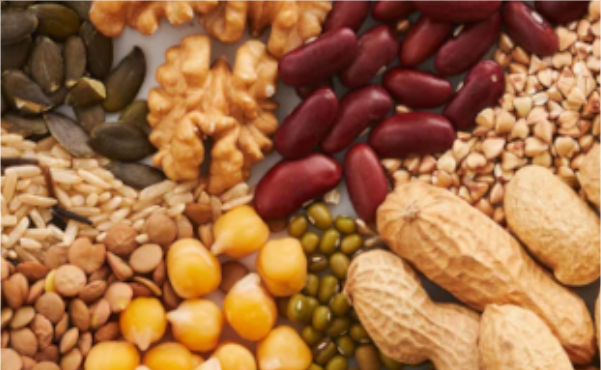
Probiotics

As a dieter looking to support hormonal balance, B vitamins are essential. These vitamins play a critical role in producing and regulating hormones in the body. In particular, vitamin B6 helps with progesterone production, while vitamin B12 supports healthy thyroid function.
Deficiencies in these crucial micronutrients can result in imbalanced hormone levels, leading to weight gain and mood swings.
Probiotics are naturally occurring bacteria found in the gut that play a vital role in maintaining hormonal balance. They promote healthy digestion, reduce inflammation, and strengthen the immune system.
Studies have found that supplementing with probiotics can effectively manage hormone-related symptoms such as bloating, mood swings, and irregular periods. However, not all probiotic supplements are created equal.
It’s important to choose high-quality options that contain live bacterial cultures and follow recommended dosage guidelines for best results.
Herbs And Natural Remedies For Hormonal Balance
Maca root, chasteberry, black cohosh, red raspberry leaf, dong quai, nigella seeds, ashwagandha, licorice root, DIM, DHEA, rhodiola, and shilajit are just some of the herbs and natural remedies that can be used to support hormonal balance. Natural supplements for supporting hormone balance come from a variety of sources. Here are just some of them.
Maca Root
 I have found Maca root to be an effective supplement in supporting hormonal balance. This root vegetable, native to Peru, has been used for centuries for its many health benefits.
I have found Maca root to be an effective supplement in supporting hormonal balance. This root vegetable, native to Peru, has been used for centuries for its many health benefits.
Maca root contains compounds called macamides which are thought to help regulate hormone levels by stimulating the endocrine system responsible for hormone production. Studies have shown that maca can also help relieve symptoms associated with hormonal imbalances, such as hot flashes, mood swings, and fatigue.
Chasteberry
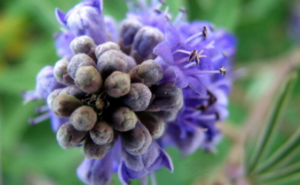 Chasteberry, also known as Vitex agnus-castus, has been used as a natural supplement for centuries to support hormonal balance. It’s beneficial for women experiencing premenstrual syndrome (PMS) and menstrual irregularities due to its ability to regulate the production of luteinizing hormone (LH) and follicle-stimulating hormone (FSH).
Chasteberry, also known as Vitex agnus-castus, has been used as a natural supplement for centuries to support hormonal balance. It’s beneficial for women experiencing premenstrual syndrome (PMS) and menstrual irregularities due to its ability to regulate the production of luteinizing hormone (LH) and follicle-stimulating hormone (FSH).
By doing so, it helps promote healthy estrogen and progesterone levels. Research shows that Chasteberry can significantly reduce PMS symptoms such as breast tenderness, bloating, mood swings, irritability, and headaches.
It is available in capsule form or as a tincture extract from health stores or online retailers.
Black Cohosh
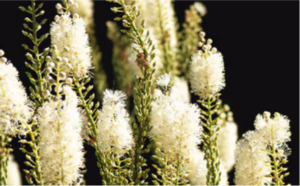 Black Cohosh is a medicinal plant used for centuries to support hormonal balance in women. It contains phytoestrogens, compounds that mimic the effects of estrogen in the body.
Black Cohosh is a medicinal plant used for centuries to support hormonal balance in women. It contains phytoestrogens, compounds that mimic the effects of estrogen in the body.
Black Cohosh can help relieve menopausal symptoms such as hot flashes, night sweats, and vaginal dryness.
As a natural supplement, Black Cohosh is safe and effective at recommended doses. However, pregnant or breastfeeding women should avoid using this herb without consulting their healthcare provider.
Red Raspberry Leaf
 Red raspberry leaf is a herb traditionally used to support women’s reproductive health. It contains high levels of antioxidants, vitamins, and minerals such as magnesium, potassium, iron, and calcium.
Red raspberry leaf is a herb traditionally used to support women’s reproductive health. It contains high levels of antioxidants, vitamins, and minerals such as magnesium, potassium, iron, and calcium.
Red raspberry leaf helps balance hormonal levels during menstruation and menopause.
Many dieters also use red raspberry leaf tea or supplements to support weight loss efforts because it helps to balance hormones that regulate appetite and metabolism.
This herb may also boost energy levels by improving blood flow throughout the body. If you’re looking for a natural way to support your hormonal balance while dieting, consider incorporating red raspberry leaf in your daily routine.
Dong Quai
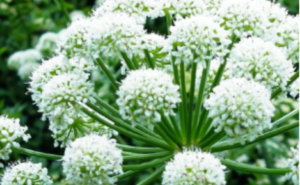 Dong Quai is a traditional Chinese herb that supports women’s health. Also known as Angelica Sinensis, the root of this plant contains natural compounds that can help regulate hormone levels and alleviate symptoms of hormonal imbalances such as menstrual cramps and irregular periods.
Dong Quai is a traditional Chinese herb that supports women’s health. Also known as Angelica Sinensis, the root of this plant contains natural compounds that can help regulate hormone levels and alleviate symptoms of hormonal imbalances such as menstrual cramps and irregular periods.
Dong Quai has been shown to contain phytoestrogens – plant-based compounds that mimic the effects of estrogen in the body, making it an excellent supplement for women who experience low estrogen levels due to menopause or other factors.
It may also help improve blood flow and circulation, facilitate healthy digestion, and reduce inflammation.
Nigella Seeds
 Nigella seeds, also known as black cumin or kalonji, are a popular spice used in Middle Eastern and Indian cuisine. These tiny seeds have been shown to have powerful anti-inflammatory effects, making them beneficial for those suffering from hormonal imbalances.
Nigella seeds, also known as black cumin or kalonji, are a popular spice used in Middle Eastern and Indian cuisine. These tiny seeds have been shown to have powerful anti-inflammatory effects, making them beneficial for those suffering from hormonal imbalances.
Research has also suggested that nigella seeds may be helpful in supporting thyroid health. This is because they contain high levels of antioxidants, which can protect the body from oxidative stress and damage caused by free radicals.
Ashwagandha
 As a dieter looking to support hormonal balance, ashwagandha is one natural supplement that can make a significant difference. This Ayurvedic herb has long been used to help the body manage stress levels, which can play a significant role in hormonal imbalance.
As a dieter looking to support hormonal balance, ashwagandha is one natural supplement that can make a significant difference. This Ayurvedic herb has long been used to help the body manage stress levels, which can play a significant role in hormonal imbalance.
Studies have shown that ashwagandha can also help normalize blood hormone levels by supporting pathways in the brain responsible for hormonal production and administration.
In addition, ashwagandha has been linked to increased fertility and improved thyroid health – both essential factors in regulating hormones.
Licorice Root
 Licorice root is a powerful natural supplement that can help support hormonal balance. It has been used in traditional medicine for centuries and contains compounds that mimic the effects of hormones on the body.
Licorice root is a powerful natural supplement that can help support hormonal balance. It has been used in traditional medicine for centuries and contains compounds that mimic the effects of hormones on the body.
Licorice root can also help reduce inflammation, manage stress levels and support liver function- all essential factors for hormonal health. Studies have shown that licorice root consumption can increase progesterone levels, which is especially beneficial for women experiencing menopause-related symptoms such as hot flashes and night sweats.
DIM
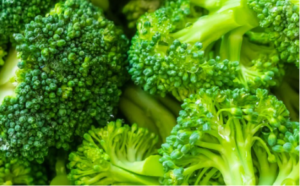 One supplement that can help balance hormones is DIM, which is derived from cruciferous vegetables like broccoli. DIM works by aiding the liver in breaking down excess estrogen in the body, which can be particularly useful for women experiencing estrogen dominance.
One supplement that can help balance hormones is DIM, which is derived from cruciferous vegetables like broccoli. DIM works by aiding the liver in breaking down excess estrogen in the body, which can be particularly useful for women experiencing estrogen dominance.
By reducing the amount of estrogen in the body, DIM can help alleviate symptoms like bloating and breast tenderness while promoting weight loss and supporting overall hormonal balance.
DHEA
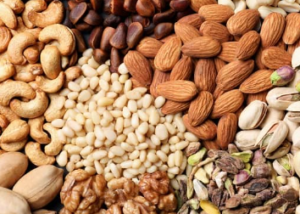 DHEA is a hormone the adrenal glands produce essential to maintaining hormonal balance. As we age, our levels of DHEA naturally decline, leading to imbalances in other hormones like estrogen and testosterone.
DHEA is a hormone the adrenal glands produce essential to maintaining hormonal balance. As we age, our levels of DHEA naturally decline, leading to imbalances in other hormones like estrogen and testosterone.
Supplementing with DHEA can help support the body’s natural production of these hormones and improve overall balance. It has been found especially beneficial for women with menopausal symptoms such as hot flashes and low libido.
Rhodiola
 Rhodiola is an adaptogenic herb used for centuries to help support hormonal balance. It works by reducing the stress hormone cortisol, which can interfere with the body’s natural hormone production.
Rhodiola is an adaptogenic herb used for centuries to help support hormonal balance. It works by reducing the stress hormone cortisol, which can interfere with the body’s natural hormone production.
One study found that women who took a rhodiola supplement experienced significant improvements in menstrual cycle length and frequency compared to those who didn’t.
Another study showed that rhodiola could help decrease symptoms of depression and anxiety, common issues associated with hormonal imbalances.
Shilajit
 Shilajit is a natural supplement used for centuries in Ayurvedic medicine to support hormonal balance, increase energy, and improve overall health.
Shilajit is a natural supplement used for centuries in Ayurvedic medicine to support hormonal balance, increase energy, and improve overall health.
It is formed from the decomposition of plants and minerals and contains over 80 different minerals, including selenium, iron, magnesium, zinc, and potassium.
Shilajit has been shown to increase testosterone levels in men while reducing estrogen levels in women. Additionally, it can support healthy thyroid function by increasing iodine uptake and promoting the production of T4 hormone.
Its antioxidant properties may also help reduce inflammation in the body, which can contribute to hormonal imbalances.
Marjoram
 Marjoram is an herb that has been used for centuries to support hormonal balance. It contains compounds that help regulate estrogen levels, making it an excellent natural remedy for women experiencing menstrual irregularities or menopause symptoms.
Marjoram is an herb that has been used for centuries to support hormonal balance. It contains compounds that help regulate estrogen levels, making it an excellent natural remedy for women experiencing menstrual irregularities or menopause symptoms.
Marjoram can also benefit those with adrenal fatigue as it helps reduce stress and anxiety levels. In addition to its hormone-regulating properties, marjoram is rich in antioxidants and anti-inflammatory compounds that promote overall health and well-being.
Incorporating Natural Supplements And Lifestyle Changes To Support Hormonal Balance
Consult with a healthcare practitioner before starting any supplement regimen, choose high-quality supplements, follow the recommended dosage, pay attention to any side effects, and incorporate healthy lifestyle changes such as a balanced diet and stress management techniques.
A – Consult With A Healthcare Practitioner
It’s important to understand that while natural supplements can be a great way to support hormonal balance, it’s always a good idea to consult with a healthcare practitioner before starting any new supplement regimen.
This is especially true if you have underlying health conditions or are taking medication.
Additionally, they can monitor your progress and make adjustments as needed. While many natural supplements are considered safe, there may be potential interactions with medications or contraindications based on your health history.
Don’t hesitate to bring up any concerns or questions during your consultation.
B – Choose High-Quality Supplements
As you consider adding natural supplements to support hormonal balance, choosing high-quality products is essential. Look for reputable brands with third-party certifications indicating their commitment to quality and safety standards.
Selecting the right type of supplement is vital based on your needs and concerns. For instance, some women benefit from probiotics for hormonal balance, while others may need B vitamins or micro-nutrients like magnesium or vitamin D3.
Research shows that certain botanicals like black cohosh and vitex are beneficial for hormone regulation but can interact with other medications when not taken correctly.
C – Follow The Recommended Dosage
It’s important to take natural supplements for hormonal balance according to the recommended dosage. Taking too much of a supplement can lead to side effects and even harm your health.
For instance, taking excessive amounts of vitamin D3 may cause nausea, vomiting, or kidney problems.
When it comes to herbal remedies for hormonal imbalance, such as black cohosh or vitex, make sure you buy them from reputable sources and follow the instructions on the label carefully.
Some herbs can interact with medications or have contraindications for certain people, so it’s essential to consult with your healthcare provider before adding them to your regimen.
Remember that supplements complement a healthy lifestyle and balanced diet rather than replace them entirely.
D – Pay Attention To Any Side Effects
It’s essential to pay attention to any potential side effects when incorporating natural supplements into your regimen for hormonal balance.
For example, black cohosh and chasteberry can sometimes cause mild stomach upset or headaches. Too much licorice root may lead to high blood pressure. DIM supplements made from cruciferous vegetables may interfere with thyroid function in those with existing thyroid conditions.
Incorporating natural supplements can be an effective way to support hormonal balance. Still, doing so safely and responsibly is crucial while being mindful of any potential side effects or interactions.
E – Diet And Exercise
Maintaining a healthy diet and exercise routine is essential for supporting hormonal balance. Here are some tips to consider:
- Reduce your consumption of sugar, refined carbs, and processed foods.
- Eat plenty of nutrient-rich whole foods, such as fruits, vegetables, lean proteins, and healthy fats.
- Choose anti-inflammatory foods that can help reduce inflammation in the body, which may contribute to hormonal imbalances.
- Incorporate regular exercise into your routine to help improve insulin sensitivity and promote hormonal balance.
- Aim for at least 30 minutes of moderate-intensity activity most days of the week.
- Consider engaging in stress-reducing activities like yoga or meditation to help manage cortisol levels and support adrenal function.
- Stay hydrated by drinking plenty of water throughout the day.
Remember, making lifestyle changes such as diet and exercise can complement natural supplements when it comes to supporting optimal hormone health.
F – Stress Management Techniques
If you’re dealing with hormonal imbalances, stress management techniques can help mitigate some of the adverse effects. Here are some tips for managing stress:
- Regular exercise helps reduce stress levels and improve hormonal balance by releasing endorphins and regulating insulin levels.
- Get enough sleep: Aim for at least 7-8 hours each night to ensure your body has enough time to rejuvenate and rebalance hormone levels.
- Practice mindfulness: Engage in meditation, yoga, or deep breathing exercises to calm your mind and reduce stress levels.
- Eat a balanced diet: A healthy, well-rounded diet rich in fruits, vegetables, lean proteins, and whole grains provides essential micronutrients that promote hormonal balance.
- Limit caffeine and alcohol intake: Both caffeine and alcohol can cause hormonal imbalances by disrupting sleep patterns and decreasing nutrient absorption.
- Spend time outdoors: Exposure to sunlight can boost vitamin D levels, which is critical for hormonal balance.
Remember that managing stress is an ongoing process that requires consistent effort over time. Incorporating these simple techniques into your daily routine can go a long way towards achieving better hormonal health.
Conclusion
In conclusion, balancing your hormones naturally with the help of supplements and herbs can greatly improve your overall well-being. From regulating menstrual cycles to managing weight gain, nutritional supplements such as vitamins B and D, probiotics for hormonal balance, and natural remedies like ashwagandha can make a significant difference in achieving hormonal health.
Remember to consult with your healthcare provider before starting any new supplement regimen. Natural supplements for supporting hormone balance can be used combined with a healthy diet and positive lifestyle changes like stress management techniques and regular exercise, all these factors can contribute to maintaining hormonal balance.
FAQs:
- What are some natural supplements that can help support hormonal balance?
- Can these supplements be taken together or consumed individually?
- Are there any potential side effects from taking natural hormone-balancing supplements?
- How long does it take for hormone-balancing supplements to show results?
Some natural supplements for supporting hormonal balance include maca root, ashwagandha, black cohosh, red clover, and evening primrose oil.
It is important to consult with a healthcare professional before taking any new supplement. They can advise on the appropriate dosages and whether it’s safe to combine certain supplements.
While many natural supplements have shown benefits for hormonal health without harmful side effects, it’s possible to experience adverse reactions like stomach upset or headaches. It’s always important to seek medical advice before starting a supplement regimen.
The amount of time it takes for improvements in hormone balance may vary depending on the person and the specific supplement being used. Some individuals may notice changes within days while others may take weeks or months to notice any difference. Discussing expectations with your doctor when starting a new supplement routine is recommended.






